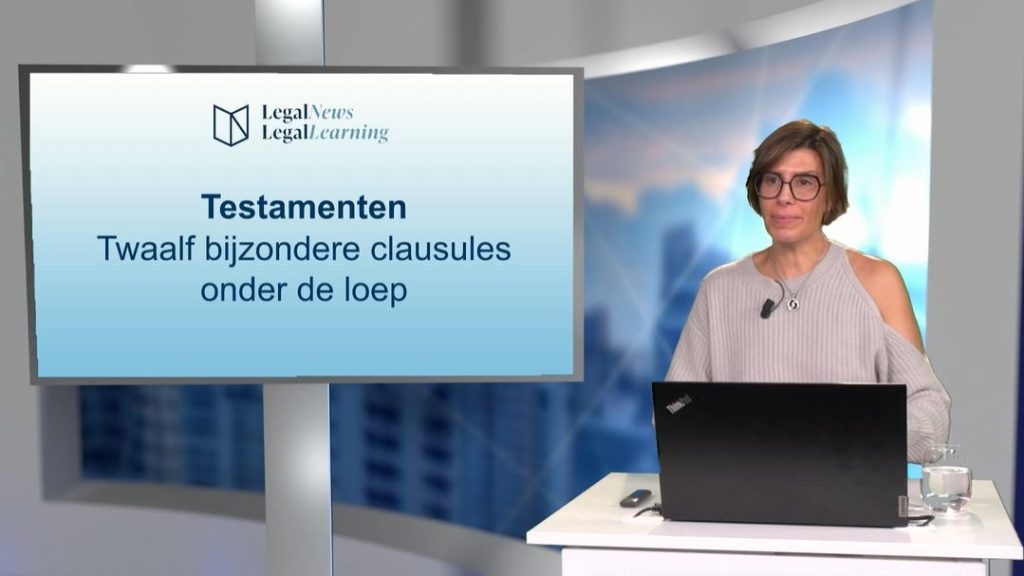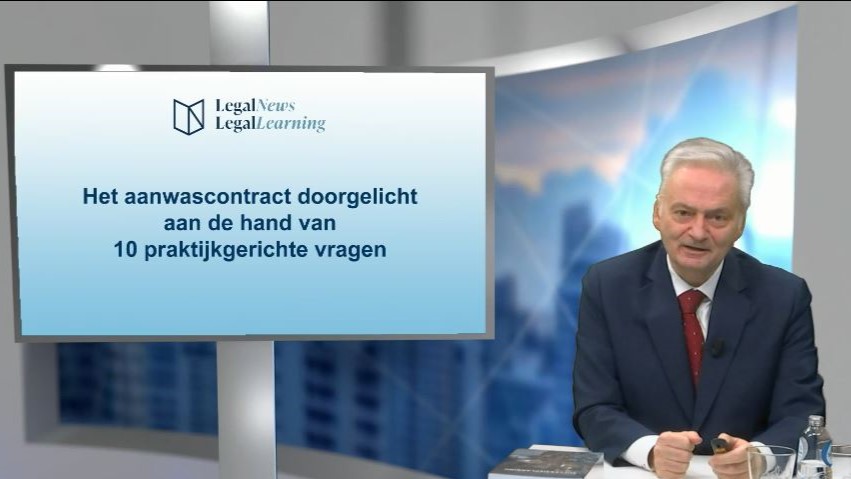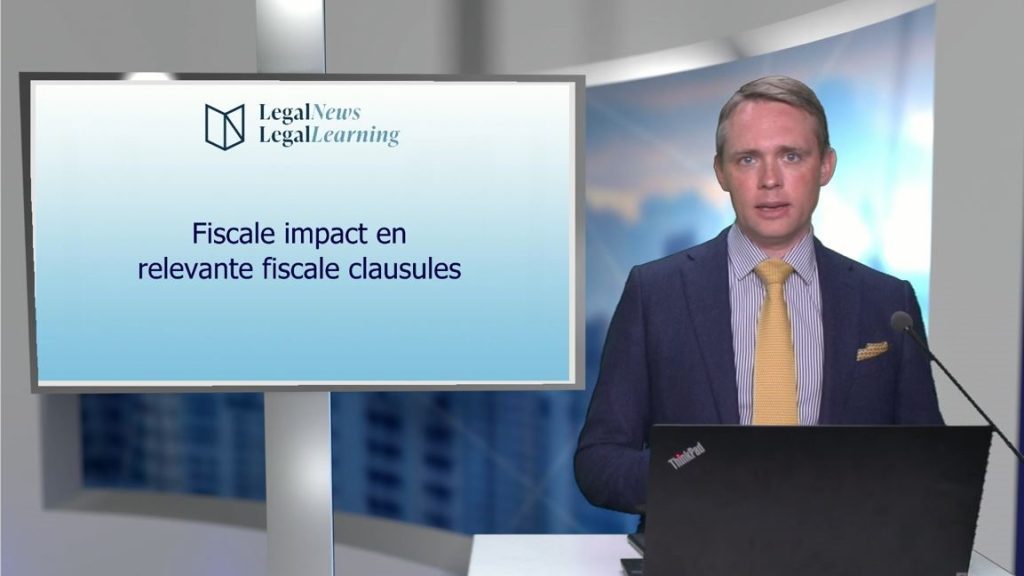Consumentenbescherming bij de verwerving
van financiële diensten: de laatste ontwikkelingen (optioneel met handboek)
Prof. dr. Reinhard Steennot (UGent)
Webinar op donderdag 30 mei 2024
Woninghuur in Vlaanderen en Brussel:
het antwoord op 25 praktijkvragen
Mr. Ulrike Beuselinck en mr. Koen De Puydt (Seeds of Law)
Webinar op dinsdag 27 augustus 2024
Vereffening-verdeling van nalatenschappen:
16 probleemstellingen
Mr. Nathalie Labeeuw (Cazimir)
Webinar op vrijdag 26 april 2024
Tax on securities and trading accounts (De Broeck, Van Laere & Partners)
Author: De Broeck, Van Laere & Partners
Publicatiedatum: 17/10/2017
On 29 September, the federal government adopted a bill of law that introduces a tax on securities and trading accounts. The following is what we know today; the rules may change in the coming weeks.
The tax will be an annual tax of 0.15 percent on certain financial instruments held on securities and trading accounts that have a value in excess of €500,000. The tax will be due for the first time in 2018.
1. Which accounts?
The tax is due on securities accounts held by individuals that have a value in excess of €500,000 per account holder (€1,000,000 for married couples and registered partners).
Securities accounts are accounts (“trading accounts”, “brokerage accounts”, …) on which securities such as stocks, bonds, etc … are held. However, not all financial instruments are targeted.
The tax is not due on savings accounts or term deposit accounts.
The tax is due on Belgian and on overseas accounts. The tax is also due on Belgian securities accounts held by non-resident account holders.
Investments held in a unitized life assurance policy linked to one or more investment funds (“insurance wrapper”) or in a pension savings account are exempt.
The tax is not due on accounts held by companies and legal entities.
2. Which securities?
Only the following financial instruments are taken into account to determine the threshold of €500,000 and to calculate the tax.
– stocks, but only the stocks of listed companies;
– bonds, irrespective of whether they are listed;
– rights in mutual investment funds or shares in investment companies;
– cash bonds;
– warrants.
Please note that the tax is due on cash bonds but not on term deposit accounts, and on warrants but not on stock options. And investments held in an insurance wrapper or in a pension savings account are exempt.
3. How is the value of the account calculated?
The value of the financial instruments is calculated, as the average of the stock price or the asset value of funds over the period October to September. Practically speaking, this is the stock price at close on the last day of the quarter of the last net asset value of the quarter that is publicly available.
If the account is opened or closed during the year, the value of that day is taken as a cut-off date to calculate the value and the tax proportionally to the number of days in the period October to September. The same applies when the account holder changes or when the account holder leaves Belgium and transfers his securities account.
The tax is calculated at 0.15% of that average value, not just on the tranche over €500,000.
4. When and how is the tax due?
The tax is calculated and paid on 1 October of every year, starting in 2018. Belgian banks report the values of the securities and the tax due per account holder and deduct the tax from the account holder’s account.
If overseas banks do not report and pay the tax, the Belgian resident account holder will have to report and pay the tax by 20 December.
5. And if a taxpayer has several securities accounts?
If the account holder has more than one securities account and he anticipates that the total value will exceed the threshold of €500,000, he must authorise the bank to deduct and pay the tax.
He will have to report in his annual income tax return that he has more than one securities account.
6. What if the account is held by more than one account holder?
If the securities account is held by two or three people, the presumption is that the account is held in equal shares by all account holders. E.g. a couple can hold up to €1,000,000 before they have to pay the tax as it is presumed that they each hold €500,000.
If they hold different shares, it is possible that too much tax has been paid for them, and they will have to reclaim the excess.
It is also possible that the account is held by one spouse while the couple has community property; the bank may not be aware of that and calculate the tax for one account holder.
7. What about usufruct on securities accounts?
If the securities account is held in usufruct, it is the person who has the usufruct who is deemed to be the account holder, even if the account is in the name of the bare owner or in the name of both.
8. What are the penalties?
Failure to report, and late, incomplete or inaccurate filing can attract a penalty of 10 to 200 percent, depending on the importance of the infringement.
The fine can be dropped if the account holder was acting in good faith.
9. And if the bank has paid too much tax?
If too much tax has been paid, e.g. because the bank was not aware of the share held by an account holder (see 6), the latter has two years to claim back the excess. He will have to prove his share in the account.
10. How can I avoid the tax – legally?
The answer depends on the type of security.
– Stocks in non-listed companies are exempt;
– Registered stocks held in the name of the owner in the share register of a company are not held on a securities account and are exempt;
– Bonds held through a bond register of the company are not targeted;
– Cash bonds are liable to the tax, but term deposit accounts are not;
– Warrants are taxed, but stock options are not;
– Registered shares in investment companies such as the Luxembourg SICAV-SIF are exempt as well.
– Securities held in a pension savings account are exempt;
– Investments in insurance wrappers are not taxed either;
– Securities accounts held by a company or legal entity are exempt;
– Alternative investments such as art, wine, gold, old-timers, … do not trigger the tax.
– Investing in real property is another valid alternative.
11. What planning is possible?
Setting up more than one securities account is not an alternative, the account holder will have to report whether he has more than one securities accounts.
Moving securities accounts abroad is not a solution either as the Belgian resident account holder will have to report the tax himself. Moreover, the overseas bank account will be reported to the Belgian tax authorities by the bank. They will receive information about the assets on the securities account under the OECD’s Common Reporting Standard.
So, what is possible?
– Converting stocks on securities account to registered stocks, if allowed by the company, is a valid alternative. These stocks are not liable to the securities accounts tax and many companies have reported receiving requests to this effect.
– Converting bonds may be possible as well.
– If the value of your securities accounts is around €500,000, selling stocks to get under the threshold may be a solution, but it will trigger the stock exchange tax. This is currently 0.27% and will go up to 0.35% in 2018. On a sale of stocks worth €100,000, the stock exchange tax is €270 (€350 in 2018), but that may save €750 on an account worth €500,000.
– Married couples can hold up to €1,000,000 on one or more accounts. Rearranging the values of accounts held by spouses, or appointing another account holder may help reduce the tax. If spouses do not have community property, this may have to be organised as a donation to thwart any anti avoidance rule.
– Transferring securities to the securities account of a child is an alternative, it is anticipated that the tax will trigger a lot of donations by way of advance on an inheritance. However, giving the bare ownership of the account to one or more children does not solve the problem. You still have to declare the account.
Holding your securities in a company does not trigger the tax on securities accounts. However, there is a cost to run a company and a company pays corporate income tax and it must withhold dividend tax on the distribution of dividends.
» Bekijk alle artikels: Successie & Vermogen
















